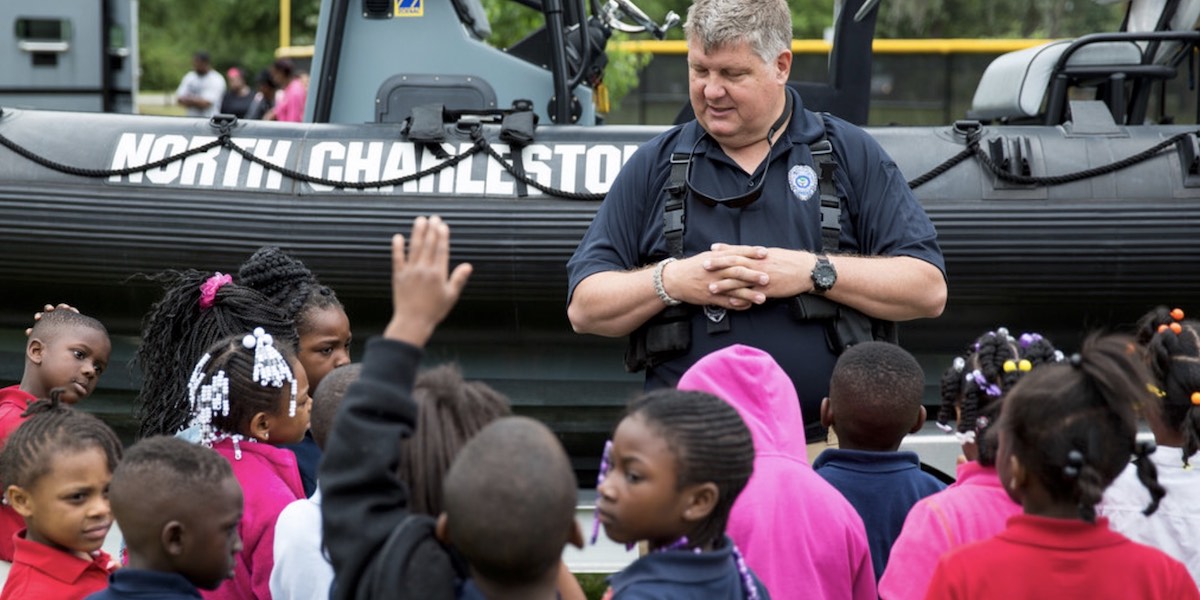
14 Jan 2021 Good Police Officers’ Lives Matter, by Rich Holt
“Be polite. Be respectful. Deescalate.” These are the priorities of the sheriff’s deputies I accompanied on a recent ride-along.
That is also the mantra of any capable, competent, and professional police department. Fortunately, and despite protesters’ claims, many police departments look a lot like the Clark County Sheriff’s Office in central Ohio.
I began my ride-along remembering bad experiences I’d had with law enforcement in the past, such as “driving while black.” For example, I was once stopped for a crooked license plate. But my ride-along showed me the values of local police. It revealed the challenges they face and their philosophy of community engagement.
An early call was a “welfare check,” or following up on a call from an elderly woman concerned about her friend. Another was from a gentleman whose electric wheelchair battery had died. Passersby had left him in the middle of a busy road, not offering to help him for the 30 minutes he was stranded there.
More serious calls came later. One was from a woman whose abusive ex-boyfriend reportedly threatened her, her family, and a few small children. Bruises on her arms marked the struggles she’d faced during an abusive relationship. The officer did his best to console her, advising her to file for a protection order. He left his card in case she needed help again.
In the cruiser, the officer explained that “it’s all about being understanding and being good to people.” He said officers who mistreat civilians are “basically just bad people,” acknowledging that the viral videos have rightfully angered many.
The last call of the night was arguably the most interesting and frightening. We were asked to help with a drunk driver who confronted state troopers after being pulled over. Upon arrival, we found seven troopers wrestling the guy into a cruiser. The guy was a fighter, that’s for sure.
What struck me was that, despite the resistance, not one trooper pulled a gun. Even though the guy ran at them, kicked, spat, and threatened to kill them, they were determined not to use firearms or even tasers.
I later asked a trooper why they didn’t just shoot the guy. After all the videos of physical violence on social media, I wondered why they didn’t act similarly when the drunk guy said he wanted to kill them.
I felt it was the toughest question of the night and the crux of current law enforcement debate. Most officers do a fantastic job, but there are enough rotten apples to encourage the “all cops are bastards” narrative pushed by the Marxist Black Lives Matter movement.
The officer and his colleagues didn’t skip a beat in answering my question.
“When I’m out there, I’m all alone,” he said. “I’m 20 to 30 minutes from backup. I have to deescalate, or people die. If people die, people won’t trust the police. Deescalating is what we do, and killing that guy wasn’t the right thing to do. It’s my job to handle it.”
His answer surprised me. But other troopers chimed in as well: “We can’t treat people like that. It’s wrong. These guys out here treating people like garbage doesn’t do nobody no good.”
My ride-along had begun with a feeling of uncertainty about a day in the life of a police officer. I found these are good, dedicated people we desperately need to be doing this work. They face down the criminals, help the guy stranded in the street, and get dangerous drunks off the road.
I believe the officers I rode with are a representative sample of the culture of the police nationwide. Unfortunately, there are also officers lacking this altruistic philosophy of community service. And union contracts oftentimes prevent bad officers from being fired, force departments to rehire disciplined officers, and expunge disciplinary records.
While the media highlights “bad apple” officers, police violence is far from the nationwide epidemic it’s portrayed to be. Most police departments are filled with the kind of officers with whom I rode. They’re the best and most dedicated among us. They, and not the BLM rioters, are the ones we should be defending.
These are the ones we need to invite to our childrens’ classrooms to say: “These are police officers, and they’re the good guys.”
New Visions Commentaries reflect the views of their author, and not necessarily those of Project 21, other Project 21 members, or the National Center for Public Policy Research, its board or staff.




